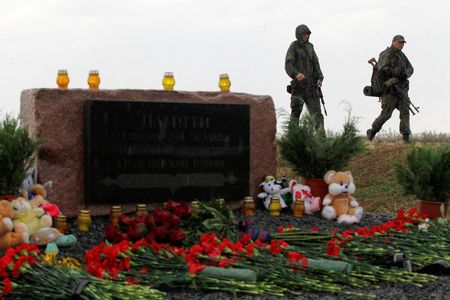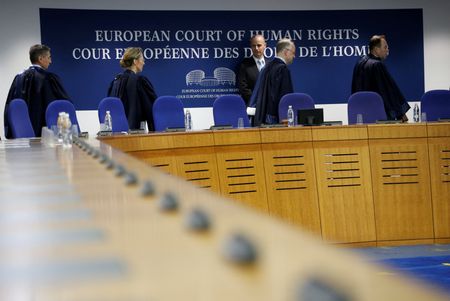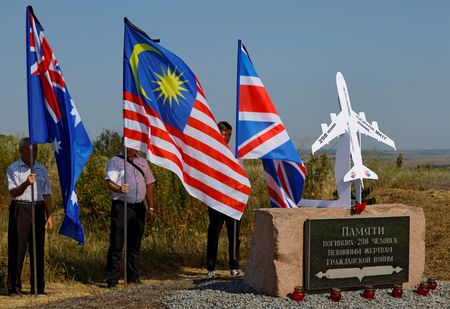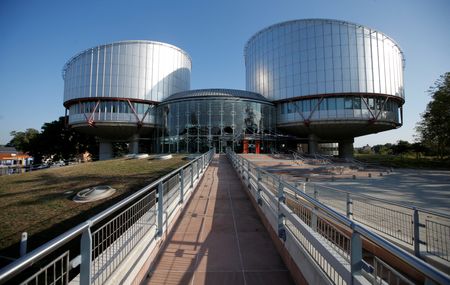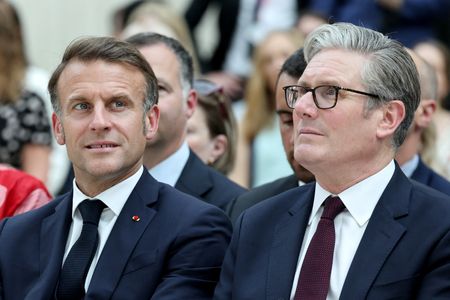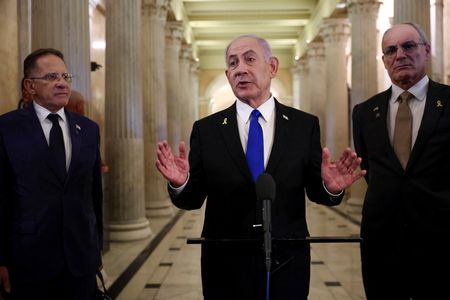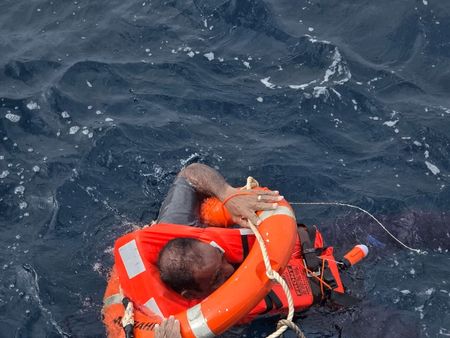By Makini Brice
PARIS (Reuters) -Europe’s top human rights court ruled unanimously on Wednesday that Russia was responsible for the downing of Malaysian Airlines flight MH17 in 2014 and also that Moscow had repeatedly and systematically violated human rights in Ukraine.
The Strasbourg-based European Court of Human Rights said Russia had performed indiscriminate military attacks, summary executions of civilians, torture including the use of rape as a weapon of war, unjustified displacement and transfer of civilians and other violations.
Ahead of Wednesday’s ruling, Kremlin spokesman Dmitry Peskov said Russia would not abide by any court decisions, saying: “We consider them null and void.”
The ECHR is an international court of the Council of Europe, also based in Strasbourg, from which Russia was expelled in 2022 following its invasion of Ukraine. Russia’s parliament then voted in 2023 to end the ECHR’s jurisdiction in the country.
In its ruling, the ECHR said: “Taken as a whole, the vast volume of evidence before the Court presented a picture of interconnected practices of manifestly unlawful conduct by agents of the Russian State (Russian armed forces and other authorities, occupying administrations, and separatist armed groups and entities) on a massive scale across Ukraine.”
The ruling concerned four consolidated cases, one of which involved Malaysian Airlines flight MH17, which departed Amsterdam for Kuala Lumpur in July 2014 and was shot down over eastern Ukraine amid fighting between Ukrainian forces and pro-Russian separatists. All 298 people on board the plane died.
Moscow denies any responsibility for MH17’s downing and in 2014 denied any presence in Ukraine.
‘SUFFERING AND GRIEF’
The ECHR ruled that Russia had failed to conduct an adequate investigation into the incident, to cooperate with requests for information or provide legal remedies for survivors. Its lack of cooperation and continued denial of any involvement has caused additional suffering for the victims’ relatives, the court said.
Responding to the ruling, Dutch Foreign Minister Caspar Veldkamp said: “Nothing can take away this suffering and grief, but I hope the verdict offers a sense of justice and recognition.” A majority of those on the airliner were Dutch.
The other three cases covered by Wednesday’s ruling were brought by Ukraine, over pro-Russian separatists accused of abducting groups of Ukrainian children and transferring them to Russia, and over alleged patterns of human rights violations during Russia’s war in Ukraine, now in its fourth year.
Ukraine’s Justice Ministry, in a statement on the Telegram messaging app, hailed the ECHR ruling as “one of the most important in the practice of interstate cases”.
The court is expected to rule in due course on possible damages and compensation but it has no way of enforcing its rulings, especially on a country that no longer recognises its jurisdiction, meaning Wednesday’s verdict is mainly symbolic.
(Reporting by Makini Brice in Paris, Charlotte van Campenhout in Amsterdam, Gleb Stolyarov in Moscow and Anna Pruchnicka in KyivEditing by Gareth Jones)

